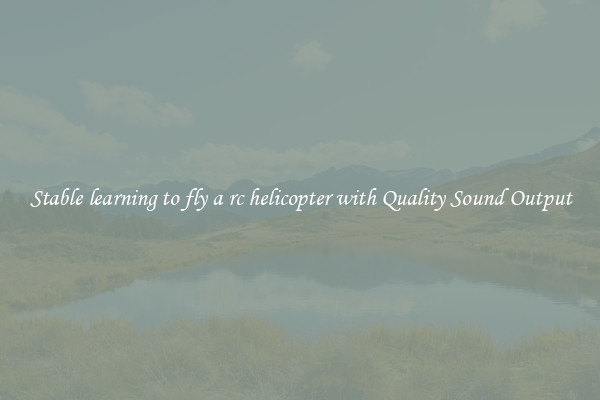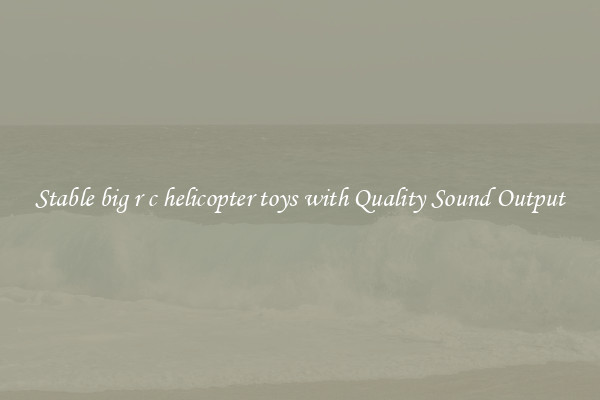Stable learning to fly a rc helicopter with Quality Sound Output
Learning to fly an RC helicopter can be an exhilarating experience. The thrill of maneuvering a small aircraft in the air is a dream for many. However, when it comes to the learning process, having quality sound output is crucial.

Flying an RC helicopter requires precision and control. Hearing the sound of the aircraft is imperative for gauging its speed, altitude, and overall performance. A stable learning experience heavily relies on accurate feedback, and quality sound output plays a significant role in this.
One of the key benefits of having quality sound output while learning to fly an RC helicopter is being able to hear the motor's RPM (Rotations Per Minute). Understanding how the motor is performing is essential for adjusting throttle and achieving stability. A clear, accurate sound output allows the pilot to identify if the motor is struggling or running smoothly, enabling them to make the necessary adjustments and avoid potential crashes.
Furthermore, quality sound output helps pilots gauge the helicopter's altitude. By listening to the sound of the rotor blades spinning, one can determine if the helicopter is too high or too low. Adjusting the throttle accordingly becomes much easier when the pilot can accurately hear the sound of the aircraft's movement through the air.
Another aspect where sound output is crucial is assessing the overall health of the RC helicopter. Unusual and unfamiliar sounds emitted by the aircraft can serve as warning signs of potential issues. These sounds may indicate loose screws, damaged rotors, or other mechanical problems that require immediate attention. By having quality sound output, pilots can identify these issues early on and take the necessary steps to rectify them, keeping both themselves and the helicopter safe.
Moreover, having a stable learning experience is crucial for confidence and progress. Accurate sound feedback allows pilots to understand the nuances of their helicopter's performance, which helps them make precise adjustments during flight. This feedback loop significantly accelerates the learning process, as pilots can quickly identify areas for improvement and work towards mastering them.
In conclusion, when learning to fly an RC helicopter, having quality sound output is paramount. The ability to hear the motor's RPM, interpret the sounds of the rotor blades, and identify potential issues significantly enhances the learning experience. With accurate feedback, pilots can make precise adjustments, achieve stability, build confidence, and ultimately become skilled RC helicopter pilots. So, invest in a RC helicopter with quality sound output and take your flying skills to new heights.

View details

View details

View details

View details








